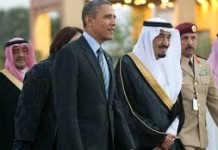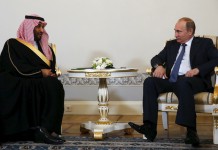Context
 Regarding the historic strategic talks between the US and Pakistan which will commence March 24th, the following four pivotal questions come to mind.
Regarding the historic strategic talks between the US and Pakistan which will commence March 24th, the following four pivotal questions come to mind.
- What does the US wish to get out the dialogue?
- What does Pakistan hope to achieve?
- What are the synergies between the actors?
- How much leverage does each have?
In a series of articles, PoliTact will attempt to identify what the participants expect of each other, as well the kinds of compromises that must be reached if a strategic partnership is to be established; we also try to understand the reactions of India, China and Russia to the talks.
Analysis
In evaluating the regional political environment, the US and other global players of course see their national interests as a priority. The Obama Administration has adopted a course correction in its perception of the ground realities. We at PoliTact have already devoted a number of articles to this new policy, with a focus on the Af-Pak Theater. The chief tenets of this policy are as follows:
- A diplomatic surge
- Regionalism, by which we mean building bridges with the regional players who can be depended upon to get the job done if given the right incentives
- The prioritization and sequencing of interests
This policy is the result of the lessons of the Bush years and pressures from the global recession; but it is more symptomatic, however, of an attempt at prioritization of interests and resources, rather than simply weakness.
In a world of increasingly limited resources, a nation is compelled to determine what is a priority now and postpone consideration of everything deemed secondary. Policy analysis must also take into account all the alternatives available in order to achieve the desired outcome; then devise a critical path towards attaining it, an often laborious process of weaving together apparently disparate phenomena into the most efficient sequence.
According to some recent statements from Vice President Biden, Pakistan currently ranks as the number one headache for the US. We at PoliTact believe that this not caused by any perceived threat from Pakistan, but because it is critical to have the country on board before dealing with Iran and Afghanistan in the short-term and China, long-term. Pakistan, after all, is one of China’s key allies and strategic partners. It is clear that for the US to properly handle Pakistan, it will have to carefully weigh its economic, defense, energy and even educational and public health needs.
Although the US and Pakistani governments have not volunteered any information regarding any agreement, PoliTact has concluded that a general understanding has in fact been arrived at. For the US, the agreement reflects the desire to protect Pakistan’s interests in Afghanistan, while using it influence with India to (at least) bring it the negotiating table. For Pakistan, this agreement probably reflects General Kiyani’s full support for the new US policy at the meeting in Brussels, as well as the recent fervor demonstrated by the country in its actions taken against the Afghan Taliban members hiding in Pakistan.
However, we believe that for the US and Pakistan there are residual thorny issues which both would like to avoid entirely but have no choice but to confront: first, what to make of the long-term role of China. In addition, As PoliTact has noted in earlier articles, the tactical interests of the two countries via Afghanistan are parallel but diverge when it comes to India.
Thus, if the US proceeds with its intentions of supporting Pakistan’s security and economic interests in the region, especially as they relate to Central Asia’s energy resources and in dealing with Lashkare Toyyiba (Kashmiri Jihadist), India is bound to feel shortchanged. On the other hand, if the US continues in its present path towards strengthening its strategic ties with India and no progress on Kashmir issue, Pakistan will be uncooperative, since it is against Indian hegemony in the region. The latter view gains support from General Kiyani’s statements in Brussels, which revealed a negative attitude towards any compromise on the part of Pakistan regarding India’s role.
Thus, ultimately, the two burning questions regarding the strategic dialogue between the US and Pakistan is: will either country give way on the subject of India? And how much leverage can the two counties exercise to attain their objectives?
Tell Us What You Think



